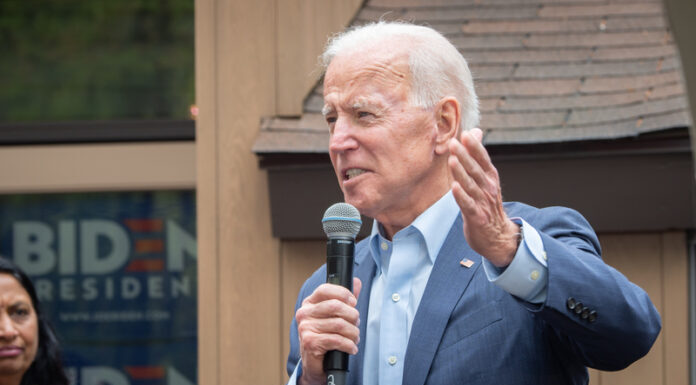Before leaving office in January 2025, President Joe Biden has used a rare law from 1953 to prohibit oil and gas drilling in over 625 million acres of federal waters. This decision is likely to trigger a major legal battle with the incoming Trump administration.
The extensive safeguard, put into effect using the Outer Continental Shelf Lands Act (OCSLA), encompasses an area greater than the combined land mass of the Louisiana Purchase, Texas, and Alaska. The action effectively prohibits future energy exploration in large swaths of the Atlantic and Pacific Oceans, the eastern Gulf of Mexico, and parts of Alaska’s Northern Bering Sea.
Donald Trump labeled Biden’s application of the 1953 law as “the worst abuse of power” he had witnessed, a sentiment reflected in a statement released after Biden’s action. Incoming White House Press Secretary Karoline Leavitt and American Petroleum Institute president Mike Sommers concurrently urged lawmakers to revert to a “pro-American energy approach to federal leasing.”
The seven-decade-old law grants the President the sole authority to withdraw areas from mineral leasing without offering means of reversal. This could potentially obstruct Trump’s intentions to speedily augment fossil fuel production. As observed by legal experts, unwinding Biden’s decision would probably necessitate an act of Congress since the law does not provide for presidential reversals.
Trump has pledged to “immediately un-ban” the restrictions, claiming they weaken American energy security. “This ban will be challenged on day one,” affirmed Trump, although the legal route remains ambiguous as the OCSLA has yet to be rigorously scrutinized in the Supreme Court.
The area shielded includes key regions Trump had earmarked for energy exploitation during his initial term. Though existing drilling operations in the Gulf of Mexico are not impacted, the ban strategically thwarts future extensions in areas previously marked for fossil fuel extraction by Trump.
The prohibition was met with substantial criticism from the oil and gas industry, which called upon Congress to impede it. Industry spokespeople voiced concerns that the constraints could potentially impact the country’s future energy supply and economic prospects, particularly as emerging technologies enable access to previously unreachable reserves.
Biden’s decision represents a stark departure from policies adopted during Trump’s first term. Trump initially advocated for expanded drilling but later prohibited operations off the coasts of Florida, Georgia, and South Carolina until 2032, a politically driven maneuver to secure support from coastal states. Biden’s wider-ranging ban significantly extends these protections.
The move has garnered bipartisan backing from coastal state governors and communities, who have long advocated for increased ocean protection. While environmental organizations laud the decision as “historic,” Republican legislators have termed it “executive overreach,” necessitating a congressional review.
Biden’s decision is reminiscent of previous presidential actions to safeguard federal waters. Former President Bill Clinton utilized the same law in 1998 to protect parts of Alaska’s waters. President Barack Obama invoked it in 2016 to safeguard large portions of the Arctic and Atlantic oceans. The Trump administration attempted to undo Obama’s withdrawals in 2017 but faced legal hurdles that remained unresolved.
The ban mainly impacts areas with limited drilling potential. It does not affect regions where the majority of U.S. offshore drilling takes place, specifically in the central and western Gulf of Mexico. Current oil and gas development operations in active drilling regions will persist unimpeded.
The Department of Interior approximates that existing leases in the Gulf of Mexico already hold ample resources to sustain current production levels for several decades. “This is about protecting future generations while ensuring energy security today,” affirmed Interior Secretary Deb Haaland at a press briefing.
This clash could possibly instigate the first notable energy policy dispute of Trump’s second term. Conservative legal groups are already gearing up to challenge the ban, arguing that the law’s permanent withdrawal provision infringes upon the Constitution’s separation of powers doctrine. Simultaneously, environmental groups are preparing to defend the ban in court.








